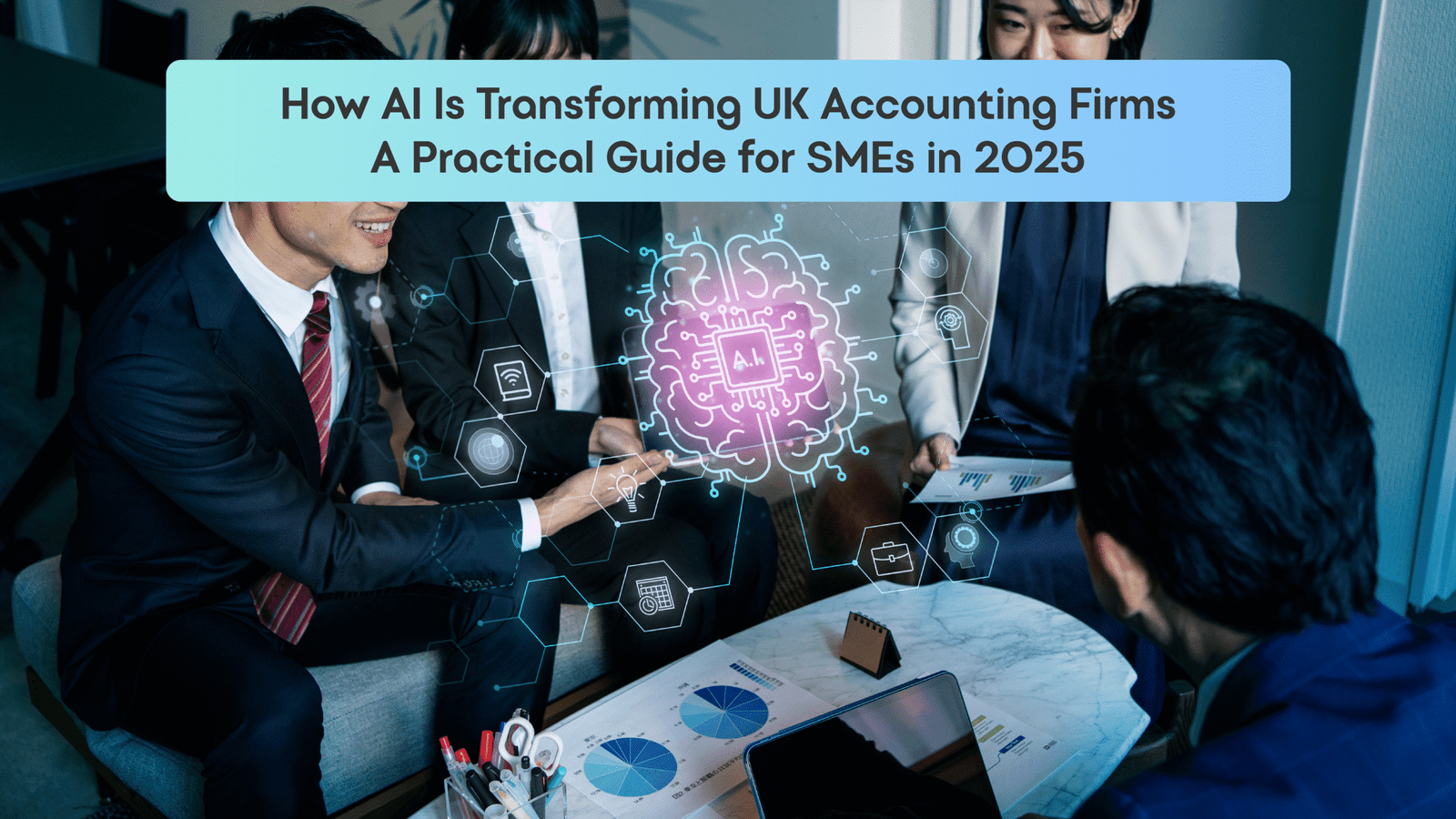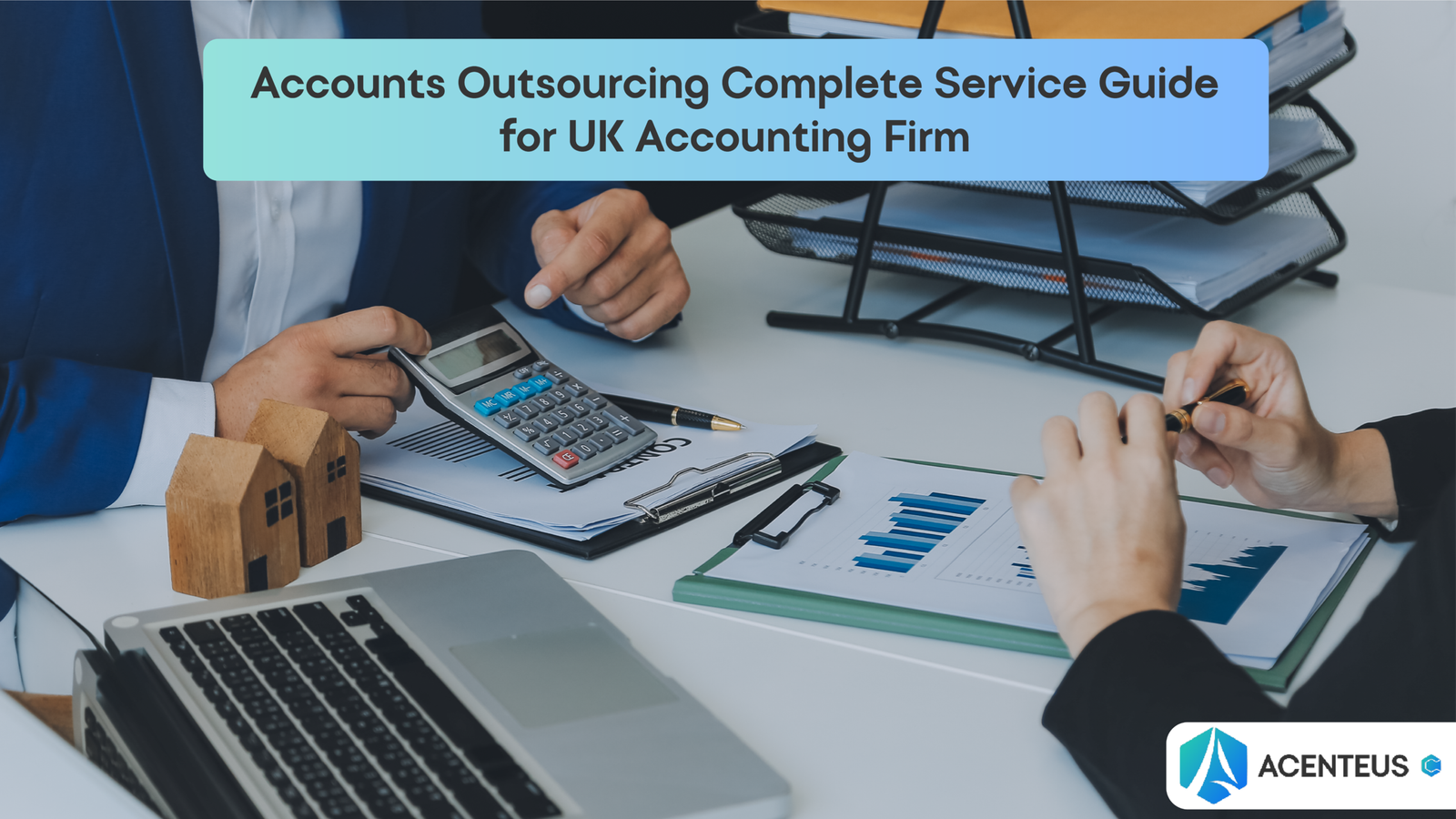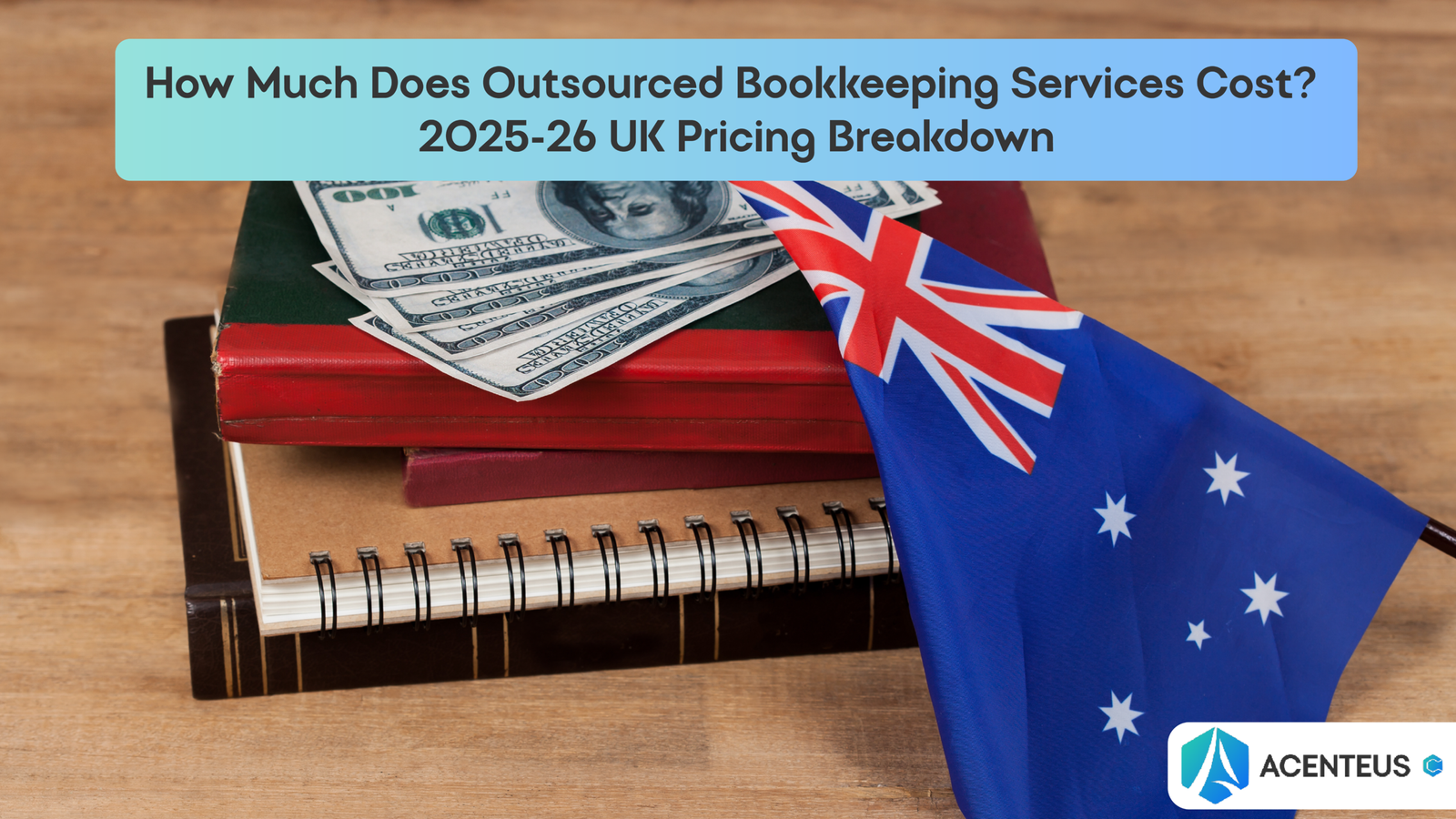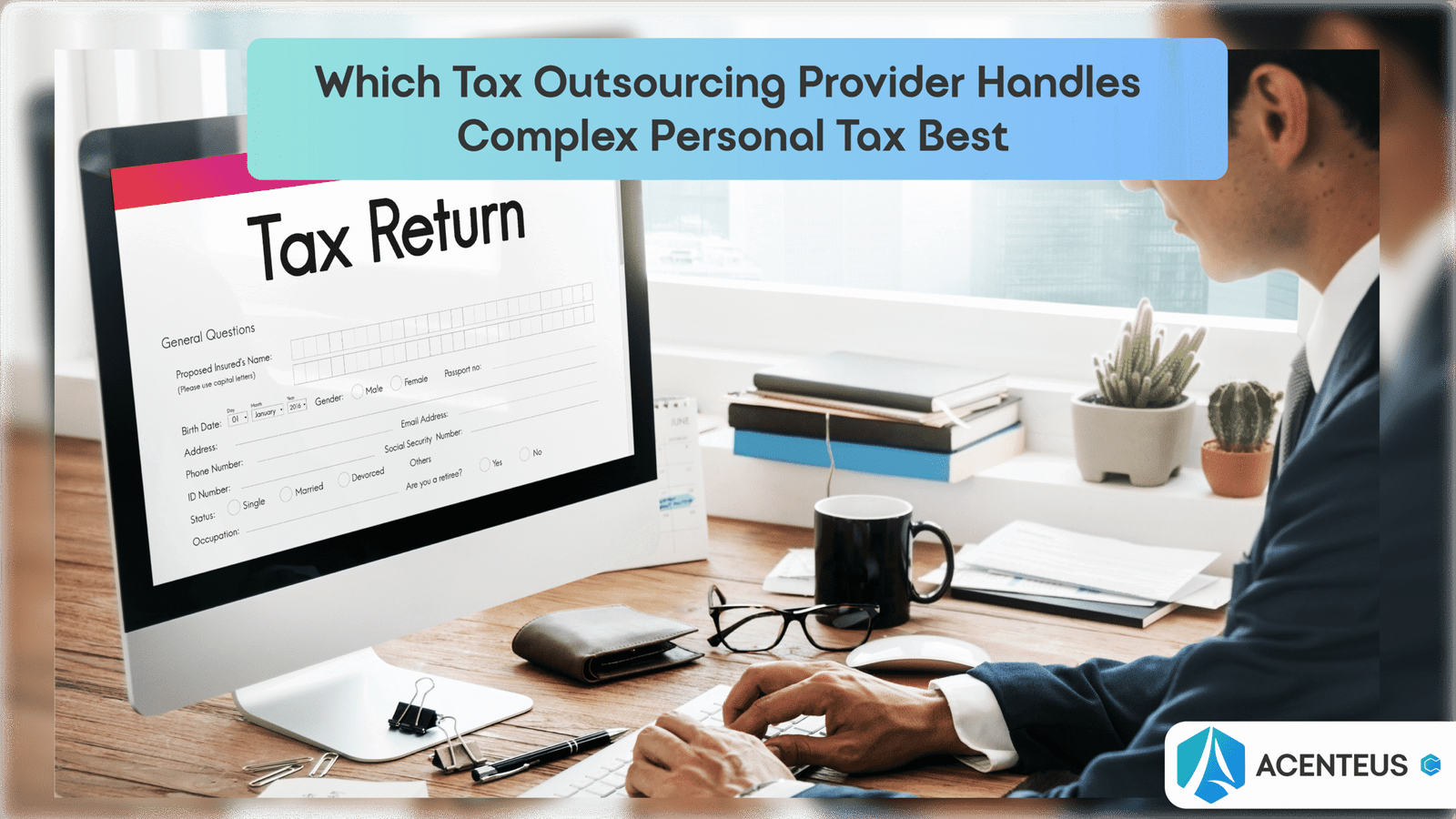Executive Summary
Artificial Intelligence (AI) is reshaping UK accounting firms, turning time-consuming tasks into automated workflows and empowering SMEs to deliver advisory services that command higher fees. By automating bookkeeping, invoice processing and bank reconciliations, small practices can save 120 hours per employee annually, reduce errors by 37%, detect fraud 40% more effectively and see revenue growth of up to 3× for early adopters. Over 91% of UK accountants plan to implement AI in 2025, making it imperative for SMEs to act now. This guide provides a practical roadmap—from tool selection and GDPR compliance to staff training and ROI measurement—to ensure a successful AI journey.
The AI Revolution in UK Accounting: Why Now?
The Perfect Storm: Staff Shortages and Rising Demand
The accountancy sector has endured acute talent shortages post-pandemic, with 68% of firms reporting unfilled vacancies for junior roles. At the same time, demand for advisory services is soaring as clients seek strategic guidance beyond compliance. AI bridges this gap by automating routine tasks and freeing qualified staff to focus on value-added services.
From £2 Billion GDP Contribution to Tripled Revenue Growth
A 2024 Sage/Demos study estimates that AI-enabled accounting could add £2 billion to UK GDP by 2026 and create nearly 20,000 new specialist roles. Early-adopter firms report 3× revenue growth within two years, driven by faster turnaround, new advisory offerings and improved client satisfaction.
Why 91% of UK Accountants Are Already Planning AI Implementation
According to a BluQube survey, 91% of UK accountants intend to deploy AI in 2025, with 42% aiming to reduce repetitive tasks. Their priorities include automated data capture, intelligent reconciliation and AI-driven forecasting, making now the perfect time for SMEs to join the wave.
Understanding AI in Accounting: Beyond the Buzzwords
Traditional Automation vs Recursive AI Learning
Traditional automation follows predefined rules but cannot adapt to exceptions. Recursive AI leverages machine learning to:
- Analyse historic transactions
- Identify patterns and anomalies
- Continuously refine its models, improving accuracy over time
This capability allows AI to handle complex bookkeeping scenarios rather than just high volumes.
The Three Pillars: Process, Predict and Advise
Successful AI adoption rests on three pillars:
- Process: Automate repetitive tasks—data entry, reconciliations and bank feeds.
- Predict: Employ predictive analytics for cash-flow forecasting, risk scoring and fraud detection.
- Advise: Utilise AI-generated insights to provide strategic advisory services, such as financial planning and scenario modelling.
Real-World Applications That Work Today
UK practices are already using AI to:
- Auto-classify expenses in seconds via OCR technology
- Detect duplicate invoices and potential fraud through pattern recognition
- Use chatbot interfaces to answer standard client queries on deadlines and compliance
Quantifying the Business Impact for UK SMEs
120 Hours Saved Per Employee Annually
Data from leading AI applications shows SMEs save an average of 120 working hours per staff member each year—equivalent to three weeks of work that can be reallocated to advisory tasks.
37% Error Reduction and 40% Better Fraud Detection
Deloitte’s Automation Study confirms AI workflows reduce data-entry errors by 37% and boost fraud detection rates by 40%, mitigating compliance risks and protecting client assets.
Revenue Growth: Triple Returns for Early Adopters
Practices embracing AI early report up to 3× growth in fee income, attributable to:
- Enhanced operational efficiency
- Expanded advisory services (e.g., predictive modelling)
- Improved client retention through faster, more accurate deliverables
Practical AI Applications Already Transforming UK Firms
Automated Data Entry and Reconciliation
AI ingests bank feeds, invoices and receipts, auto-coding transactions and flagging anomalies for human review—streamlining up to 80% of manual bookkeeping tasks.
Intelligent Invoice Processing and Expense Management
OCR-powered engines extract line items from invoices, match purchase orders and escalate exceptions, reducing invoice-processing times from days to hours.
Predictive Cash Flow and Financial Forecasting
Machine learning models forecast cash flow up to 90 days in advance with 85% accuracy, facilitating proactive working-capital management and advisory services.
Compliance Monitoring and Regulatory Updates
AI modules scan transactions for VAT, MTD and AML compliance, automatically alerting finance directors to late filings or suspicious activity.
UK-Specific AI Accounting Solutions for SMEs
QuickBooks Online with Intuit Assist
QuickBooks’ AI assistant categorises transactions, learns from corrections and suggests expense codes, improving accuracy over time with minimal setup.
Xero’s AI-Powered Bank Reconciliation
Xero Match uses AI to auto-match up to 90% of bank lines, cutting reconciliation time by 70% and enabling real-time financial visibility.
Sage Copilot and Clear Books AI Features
Sage Copilot offers a chatbot interface for financial queries, while Clear Books uses AI to automate invoice processing and VAT return generation.
Emerging Players: Trullion and Vic.ai
Trullion integrates with Xero and QuickBooks to automate journal entries, and Vic.ai provides a “virtual accountant” for end-to-end bookkeeping automation.
Addressing Common SME Concerns About AI Implementation
Cost vs ROI: What UK Firms Are Actually Paying
SMEs invest between £500–£1,500 per month in AI-powered accounting suites. Assuming 120 saved hours at £25/hr, most practices recoup their investment within three months.
Data Security and GDPR Compliance
Reputable AI vendors maintain UK GDPR compliance: encryption at rest and in transit, ISO 27001 certification and regular penetration tests. Always verify vendor credentials and conduct annual security reviews.
Staff Displacement Fears vs Job-Creation Reality
While AI automates routine tasks, it creates roles in AI oversight, data analysis and strategic advisory. The Sage/Demos forecast predicts 20,000 new specialist positions by 2026, offsetting displacement.
Implementation Roadmap: Getting Started in 2025
Assessment: Which Processes to Automate First
Use time-and-motion studies to identify high-volume, rule-based tasks—bank reconciliations, expense coding and invoice processing—as prime candidates for automation.
Choosing the Right AI Tools for Your Firm Size
- Solo practitioners: FreeAgent or Xero starter plans with AI add-ons
- SMEs (2–10 staff): QuickBooks Online Plus or Sage Business Cloud with Copilot
- Mid-tier (10+ staff): Enterprise solutions like Vic.ai or bespoke Trullion integrations
Staff Training and Change Management
Host interactive workshops, designate “AI champions” and document new processes in an internal knowledge base to ensure smooth adoption.
Measuring Success: KPIs That Matter
KPI | Target | Frequency | Owner |
Manual Posting Hours Saved | ≥120 hours/yr | Quarterly | Finance Director |
Reconciliation Accuracy Rate | ≥98% | Monthly | Accounts Team Lead |
Fraud/Exception Detection Rate | ≥40% improved | Quarterly | Risk & Compliance |
Client Satisfaction NPS | ≥70 | Post-engagement | Client Services Lead |
The Human Element: How AI Enhances Rather Than Replaces
From Number Crunchers to Business Coaches
AI liberates accountants from data entry, allowing them to interpret insights, coach clients on financial strategy and build deeper relationships.
Client Advisory Services Expansion
With AI-powered forecasting and scenario modelling, firms offer proactive advisory—helping SMEs navigate cash-flow challenges and investment decisions.
Strategic Planning and Analysis Focus
Accountants transition into strategic partners, using AI-generated dashboards to inform boardroom decisions and drive client growth.
Case Studies: UK SME Success Stories
Regional Practice: 40% Time Savings on Bookkeeping
A Midlands firm implemented Xero’s AI reconciliation, cutting bookkeeping time by 40%, enabling launch of an advisory division that boosted fees by 20% in six months.
Freelance Accountant: Scaling from Solo to Team of Five
A sole practitioner adopted Intuit Assist and FreeAgent, automating 85% of data entry. Within a year, client capacity tripled, permitting hiring of four junior accountants.
Mid-Tier Firm: Enhanced Audit Quality Through AI
A London practice integrated Trullion into audit workflows, reducing sample-selection time by 60% and uncovering control exceptions earlier, resulting in stronger audit opinions.
Future-Proofing Your Practice: What’s Next for 2025–2026
Integration with MTD and Real-Time Reporting
AI platforms will integrate directly with HMRC’s MTD API for VAT and Income Tax, automating filings and compliance checks in real time.
Advanced Analytics and Business Intelligence
Expect AI to unify ERP, CRM and accounting data, delivering holistic KPIs and predictive insights across sales, operations and finance.
Regulatory Changes and AI Compliance Requirements
The ICAEW and FCA are developing guidance on AI ethics, transparency and explainability. Stay informed via ICAEW directives on AI in practice.
Conclusion & Call to Action
AI is revolutionising UK accounting—transforming back-office processing into strategic advisory. By following this practical guide—selecting suitable tools, training your team and tracking KPIs—SMEs can capture efficiency gains, enhance service quality and drive revenue growth. Ready to embark on your AI journey? Explore our digital transformation services or book a free discovery call to tailor a solution for your firm.
Frequently Asked Questions
For solos, FreeAgent and Xero starter plans with AI add-ons offer quick wins at low cost.
Most SMEs recoup investment within three months, given an average saving of 120 hours per staff member at £25/hr.
Insist on UK GDPR compliance: encryption, ISO 27001 certification and routine penetration tests.
AI automates repetitive tasks but creates roles in AI oversight, data analysis and advisory, with a forecast of 20,000 new specialist positions by 2026.
Choose platforms with HMRC-approved MTD APIs—Xero, QuickBooks and Sage all offer certified solutions.
Interactive workshops, AI-champion mentors and a documented knowledge base ensure smooth adoption.
Yes—AI-enabled software submits VAT returns and quarterly Income Tax updates directly to HMRC’s API.
Track exception detection rates pre- and post-AI implementation; aim for at least a 40% uplift.
The UK’s AI Accelerator Programme and Innovate UK grants may offer funding—consult your regional Growth Hub.
Transparency of AI decisions, data privacy and bias management are key; follow ICAEW ethical guidelines on AI.
Integrated BI tools will enable dynamic scenario modelling, KPI dashboards and proactive strategic recommendations.
ICAEW’s forthcoming AI in Practice guide and FCA’s consultation on automated reporting are essential resources.







